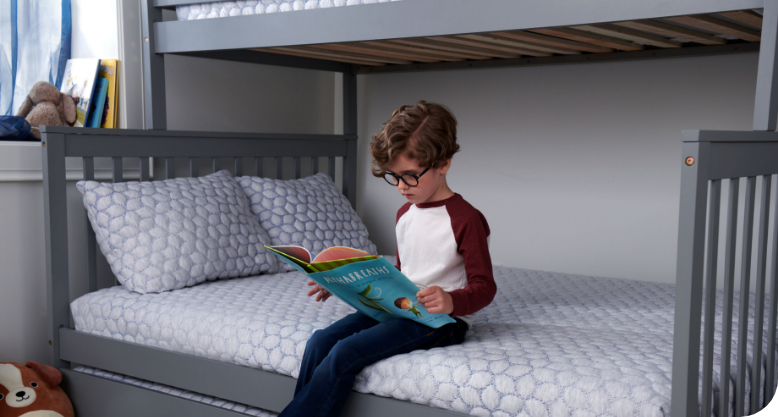Toddler Sleep Regression and the Bedtime Battle
Toddler procrastination: it’s a very real thing!
If you have a toddler, you likely already know that their sleep habits can be somewhat unpredictable. As they grow and become more independent, it’s only natural that they desire to gain more control over their life, including when it's time to go to bed. This, what many call the toddler sleep regression, can make bedtime challenging to say the least.
As a gentle sleep consultant, I hear from a lot of families who struggle with toddlers resisting sleep. Let's look at some methods you can try if you find your toddler delaying bedtime.
Why Do Toddlers Procrastinate Sleep?
Procrastination is one of the most frequent sleep problems among toddlers – in fact, they’re often quite good at it. But why is your toddler procrastinating bedtime? There are several possible explanations.


Separation Anxiety
At this age, children start to understand the concept of being away from their parents or caregivers, which can make them anxious. This anxiety can manifest at bedtime when they know they will be separated from their parents for an extended period.
Overstimulation
Toddlers are at a stage of rapid development and are constantly absorbing new experiences. If they are overstimulated by activities, especially just before bedtime, it can be challenging for them to settle down and fall asleep.
Testing Boundaries
This is also a stage where toddlers start to assert their independence and test limits. Refusing to go to bed can be a way for them to express autonomy and push boundaries.
Fear of Missing Out
Like I said, toddler procrastination is real … and so is toddler FOMO (aka, fear of missing out). Toddlers are naturally curious and might resist sleep because they don't want to miss out on any interesting activities or interaction with family members.
Some Procrastination Is Completely Normal!


Chatting, “needing” to use the bathroom, asking for a drink or a snack or just “one more bedtime story” – your toddler’s imagination and communication skills are rapidly developing at this age, and using newly learned distractions to delay bedtime is completely normal. Within reason, of course.
That's not to say it's not frustrating! As a parent who has been in your shoes, I get it. My general rule is that if your child is taking 60 minutes or less to fall asleep, don't worry about it, especially if they are quite happy to remain in their bed/room before falling asleep. That may sound like a really long time, especially if they were once falling asleep within 10-20 minutes of getting into bed. But toddler sleep regression is, unfortunately, a part of toddlerhood – and take comfort in that they will grow out of it eventually!
What to Do When Procrastination Becomes a Problem
If, however, your child is repeatedly getting out of bed, getting upset at bedtime or “messing around” in their bedroom, toddler sleep regression becomes an issue that should be tackled. Here’s my advice.


Don’t Create Any Unwanted Habits
My best and more important advice for parents on this topic is do not start doing something that you don't want to continue doing. For example, some parents will lie on the floor of their child’s room to keep them company as they fall asleep. But unless you plan on crashing on your kid’s floor for the foreseeable future, this is not necessarily the best habit to start! (For you, your kid or your back!)
Reconsider Your Daytime Routine…
It's also worth noting here that if your toddler repeatedly takes longer than 60 minutes to go to sleep, they may not be tired enough for bed – so take a look at your entire daytime routine as it may need adjustments.
…and Your Nighttime Routine
While we’re on the subject of routines, let’s talk about their bedtime routine! Toddlers thrive on consistency. If they don't have a regular bedtime routine, it can be hard for them to understand that it's time to wind down and go to sleep. What this looks like is up to you – putting on pajamas, brushing teeth, reading a bedtime story – but try to keep it the same every night.
Be Consistent
If your child gets out of bed, take them back. And repeat. And repeat! It might be a good idea to spend a moment standing outside your child's bedroom, and if you see that they are about to get out again, remind them gently yet firmly that they are to stay in bed. I said it above and I will say it again: the key thing here is to stay consistent.
Create a Conducive Sleep Environment
Whether your child is in a toddler bed or their first “Big Kid Bed,” make sure their sleeping environment is conducive for sleep! It should be cool, dark and comfy with minimal distractions. You can try a non-toxic kids pillow or non-toxic pajamas to help them get comfy, and noise machines are a great tool for drowning out any household noise at bedtime.
Break the Bad Habits
What if you find this post after you have started sitting with your toddler for them to fall asleep, and now you're stuck? A lot of parents get stuck here, but I have a plan for getting you out of the room.
Once your child has settled into bed, have a reason to leave the room for a second – laundry to pop in the hamper, using the bathroom, etc. Tell your child where you’re going, let them know what you want them to do and assure them you'll be right back. (Give them something specific to do, like “Think about what you want to have for breakfast tomorrow.”)
Leave the room for a second and then come back in. If your child follows you out, remind them what you were doing, what you wanted them to do and that you'd be right back, then take them back to bed. Each night, do the same. As your child begins to trust that you’ll return, you can gradually lengthen the time you are out of the room. Don't rush this! It's easier to build trust than rebuild trust.
Understanding a toddler delaying bedtime can help you address the toddler sleep regression by creating a conducive sleep environment, establishing consistent routines and breaking any unwanted sleep habits. But, give your little one some grace – toddler procrastination is normal, healthy and a great sign that their imagination and communication skills are progressing as they should be.
Are mornings an issue for you, too? I have some helpful tips on what to do when your toddler wakes too early! Check out this post.

 Baby
Baby

 Kids
Kids

 Learn
Learn

 FIND A STORE
FIND A STORE CONTACT
CONTACT
